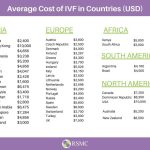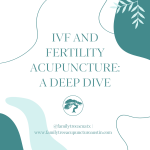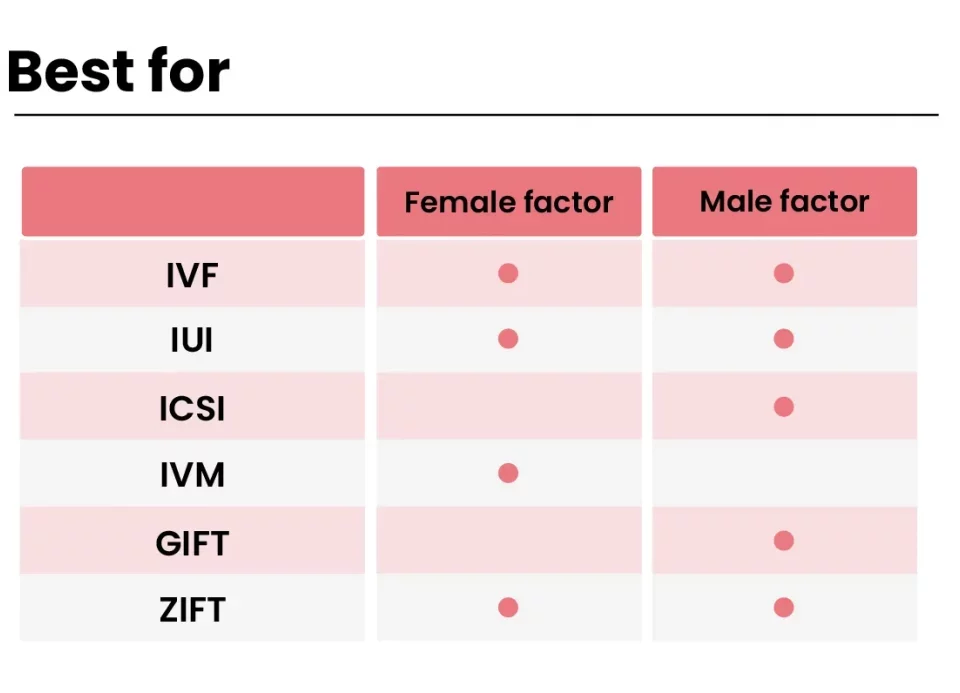
Why Is IVF So Expensive?
April 17, 2025
Why People Choose IVF: A Deep Dive into the Journey of Hope
April 17, 2025Are Catholics Against IVF? A Deep Dive into Faith, Science, and Family

Are Catholics Against IVF? A Deep Dive into Faith, Science, and Family
When you hear about in vitro fertilization (IVF), it’s often tied to stories of hope—couples longing for a child, turning to science to make their dreams come true. But for many Catholics, the topic stirs up big questions about faith, morality, and what it means to bring life into the world. If you’ve ever wondered why the Catholic Church has such a firm stance on IVF, or how everyday Catholics feel about it, you’re not alone. This isn’t just a debate about science or religion—it’s about real people, tough choices, and deeply held beliefs.
In this article, we’ll unpack the Catholic view on IVF, explore why it’s such a hot topic, and dig into the personal stories and practical realities that often get overlooked. Whether you’re Catholic, curious about the faith, or just trying to understand the bigger picture, there’s something here for you. Let’s dive in.
The Catholic Church’s Official Stance on IVF
The Catholic Church has a clear position on IVF: it’s considered “morally unacceptable.” But what does that really mean? At its core, the Church believes that every human life is sacred from the moment of conception, and that creating life should happen through the natural, loving act of a married couple—not in a lab.
Back in 1987, a Vatican document called Donum Vitae (The Gift of Life) laid out the reasoning. It says that IVF separates the act of making a baby from the intimate bond of marriage, turning it into a technical process. The Church sees this as a problem because it believes kids deserve to come into the world as a result of their parents’ love, not as a product of a procedure. Plus, IVF often involves creating multiple embryos, some of which might be discarded, frozen, or used for research—actions the Church views as disrespecting human life.
So, in short: the Church says no to IVF because it disrupts the natural connection between love, marriage, and procreation, and because it can lead to the loss of embryos, which Catholics see as tiny human beings with souls.
Why Does the Church Care So Much?
You might be wondering why the Church is so strict about this. It’s not just about rules—it’s about a bigger picture of life and dignity. Catholics believe that God designed humans with a purpose, and that includes how we create new life. The idea is that sex isn’t just about pleasure or even just about making babies—it’s a sacred act that ties a couple together and opens the door to new life, all in one go.
IVF, though, splits that apart. It takes the baby-making part and hands it over to doctors and lab techs. For the Church, this feels like playing God, turning something deeply personal into a science experiment. And then there’s the embryo question: if life begins at conception (which science backs up with the formation of unique DNA), then every embryo is a person. Throwing them away or freezing them indefinitely? That’s where the moral alarm bells start ringing.
Imagine it like this: if you bake a batch of cookies but toss half of them in the trash because they’re not perfect, it’s wasteful. Now picture those “cookies” as potential humans—it’s a whole different level of concern.
How Do Everyday Catholics Feel About IVF?
Here’s where things get messy. The Church’s teaching is one thing, but what about the people sitting in the pews? Surveys show a surprising split. A 2023 Pew Research study found that 55% of white, non-Hispanic Catholics in the U.S. say they or someone they know has used fertility treatments like IVF. Even more telling, a 2013 Pew survey revealed that only 13% of U.S. Catholics think IVF is morally wrong. That’s a big gap between official teaching and personal views.
Take Erin and Mickey Whitford, a Catholic couple from NPR’s 2024 story. They met in a Catholic high school, dated for years, and turned to IVF after struggling to conceive. For them, it wasn’t about rejecting their faith—it was about building a family out of love. They didn’t ask their priest for permission, but they did ask their congregation to pray for them. Stories like theirs show that for many Catholics, the desire for kids can outweigh the Church’s “no” on IVF.
On the flip side, some Catholics stick closely to the teaching. Heidi and Dan Niziolek, another couple from the same NPR piece, chose IVF too, but Heidi later wrestled with guilt over the unused embryos. She even held a little ceremony for them, placing their lab tubes next to photos of deceased relatives. It’s a reminder that even when Catholics go against the Church’s stance, it’s not always an easy choice.
Quick Poll: What’s Your Take?
How do you feel about IVF after hearing these stories?
- A) It’s a personal choice, faith aside.
- B) I get why the Church says no, but it’s tough to judge.
- C) I agree with the Church—life’s too sacred for labs.
Drop your vote in your head (or share it with a friend) and let’s keep going!
The Science Behind IVF: What Happens to Embryos?
To really understand the Catholic stance, you need to know what IVF involves. Here’s the basic rundown: doctors give a woman drugs to produce lots of eggs, collect those eggs, mix them with sperm in a dish, and let embryos grow for a few days. Then, they pick the “best” ones to implant in the womb, hoping one sticks. Sounds straightforward, right? But here’s where it gets tricky.
- Multiple Embryos: Clinics often create 5-10 embryos (or more) per cycle to boost the odds of success. Not all get used.
- Grading Process: Embryos are checked for quality—think of it like picking the ripest apples. Ones with defects might get discarded.
- Leftovers: Extra embryos can be frozen, donated, or destroyed. In the U.S., there are over a million frozen embryos sitting in storage right now.
From a Catholic view, this is a big deal. If each embryo is a human life, then discarding or freezing them is like abandoning people. Science backs up the “life at conception” idea—once sperm and egg meet, you’ve got a unique genetic code that’s ready to grow into a person. But IVF’s success rate (about 25-30% per cycle, per the CDC) means a lot of those lives never make it.
Alternatives to IVF: What Does the Church Suggest?
The Church isn’t just saying “no” without offering help. It’s all about finding ways to support couples that fit its beliefs. Here are some options it’s cool with:
NaProTECHNOLOGY
This mouthful of a word stands for Natural Procreative Technology. It’s a medical approach that digs into why a couple can’t conceive—like hormone issues or blocked tubes—and fixes those problems so they can try naturally. Studies from the Pope Paul VI Institute show it’s often more successful than IVF (up to 80% success in some cases) and way cheaper. Plus, no petri dishes needed.
Adoption
The Church loves adoption. It’s seen as a beautiful way to grow a family while giving a home to a child in need. Pope Francis has called it a “generous act” that reflects God’s love. In the U.S., about 135,000 kids are adopted each year, according to the Adoption Network.
Prayer and Patience
This might sound old-school, but many Catholic couples lean on faith. The Church encourages them to trust God’s timing, even if it’s hard. It’s not a fix, but it’s a mindset that shapes how some approach infertility.
✔️ Pro Tip: If you’re exploring NaPro, look for a certified practitioner—there’s a network of them across the U.S.
❌ Heads-Up: These options take time and don’t guarantee a baby, which can be tough when you’re desperate.
The Emotional Side: Infertility and Faith
Let’s talk about the human part of this. Infertility hits hard—about 1 in 8 couples in the U.S. deal with it, per the CDC. For Catholics, it’s not just a medical issue; it’s a spiritual one too. The Church gets that pain—Donum Vitae even quotes the Bible, where Rachel cries to Jacob, “Give me children, or I shall die!” (Genesis 30:1). But the solution, it says, can’t cross moral lines.
Picture this: You’re a Catholic couple, married five years, and every month is a letdown. IVF feels like a lifeline, but your faith says it’s wrong. What do you do? Some pray and wait. Others quietly go for IVF, wrestling with guilt later. A 2024 post on X from @emzanotti shared her story: eight years of “licit” treatments, no IVF, and a lot of soul-searching. It’s a raw, real struggle that doesn’t get enough airtime.
IVF Around the World: A Catholic Twist
The Catholic stance isn’t just a U.S. thing—it’s global, but it plays out differently depending on where you are. In Ireland, where Catholicism runs deep, a 2003 Irish Times article noted couples feeling torn after bishops slammed IVF. Some worried their kids wouldn’t be welcomed in church rituals like baptism. Fast forward to today, and Ireland’s fertility clinics are booming, showing that faith doesn’t always stop people.
In Latin America, heavily Catholic countries like Mexico see similar patterns. Clinics offer IVF, and couples use it, even if priests preach against it. A 2022 study from the Guttmacher Institute found that Catholic women in these regions often prioritize family over doctrine when push comes to shove.
This global lens shows a truth: Catholic teaching is firm, but human nature is flexible. People bend rules when the stakes feel personal.
The Ethics Debate: Where Catholics and Others Meet
IVF isn’t just a Catholic hot potato—other groups weigh in too. The Southern Baptist Convention, America’s biggest Protestant denomination, passed a 2024 resolution against IVF, citing embryo loss. That’s a rare overlap with Catholics, though Baptists are usually more open to fertility tech.
Meanwhile, secular folks often see IVF as a basic right. “Why should religion dictate my family?” they ask. It’s a fair question, and it’s why IVF’s legality isn’t seriously threatened in the U.S., even after Alabama’s 2024 embryo ruling sparked a firestorm.
Here’s a quick comparison:
| Group | Stance on IVF | Why? |
|---|---|---|
| Catholic Church | Against | Separates love and life; embryo concerns |
| Southern Baptists | Mostly against | Embryo dignity |
| Secular View | For | Personal freedom, medical progress |
This clash of views keeps the debate alive—and it’s not going away anytime soon.
Mini Quiz: Test Your IVF Ethics IQ
- Why does the Church say IVF is wrong?
- A) It’s too expensive
- B) It separates sex from making babies
- C) It’s only for single people
- What happens to extra embryos in IVF?
- A) They’re all implanted
- B) Some get frozen or discarded
- C) They’re turned into stem cells
(Answers: 1-B, 2-B. How’d you do?)
New Angles: What’s Missing from the Conversation?
Most articles stop at “the Church says no” or “people do it anyway.” But there’s more to unpack—stuff that doesn’t get enough spotlight. Let’s shine a light on three fresh angles.
1. The Mental Health Toll of Saying No to IVF
Turning down IVF isn’t just a moral choice—it’s a mental marathon. A 2023 study from the American Psychological Association found that infertile couples face higher rates of depression and anxiety, especially when treatment options are limited. For Catholics who skip IVF, there’s added pressure: guilt if they cave, grief if they don’t. Yet, few talk about support systems—like Catholic infertility groups (think Springs in the Desert)—that help couples cope without feeling judged.
✔️ Tip: Look into peer-led ministries if you’re in this boat—they’re a lifeline.
2. The Frozen Embryo Dilemma
Over a million frozen embryos sit in U.S. clinics, per a 2021 estimate from the American Society for Reproductive Medicine. Catholics call this a crisis—human lives on ice, with no clear future. Some suggest “embryo adoption,” where couples implant someone else’s leftovers. But the Church isn’t sold—it still ties back to IVF’s original sin. This limbo state is a moral puzzle no one’s fully cracked yet.
Imagine a freezer full of potential kids, waiting for a decision that might never come. It’s heavy stuff.
3. IVF’s Hidden Costs
Everyone talks about IVF’s price tag—$12,000-$20,000 per cycle, says the FertilityIQ 2024 report. But what about the long-term costs? A 2022 study in Human Reproduction found that IVF babies have a slightly higher risk of birth defects (6% vs. 4% for natural births). Plus, the emotional wear-and-tear on couples juggling hope and failure isn’t cheap either. The Church’s push for natural fixes like NaPro might save more than just money—it could spare heartache too.
❌ Watch Out: IVF’s success stats often hide how many cycles (and dollars) it really takes.
What’s Trending Now: IVF in 2025
Google Trends shows “Catholic views on IVF” spiking since Alabama’s 2024 embryo ruling, with searches like “is IVF a sin” and “Catholic fertility options” climbing. On X, posts from March 2025—like @SgtJulier1776’s take on embryo dignity—echo the same tension: Catholics doubling down on life-at-conception vs. others defending choice.
Users want answers that bridge faith and real life. They’re asking: “Can I be a good Catholic and still do IVF?” or “What else can I try?” That’s where this article steps up—offering not just the “why” but the “what now.”
Practical Steps: Navigating Infertility as a Catholic
So, you’re Catholic (or just curious) and facing infertility. What’s next? Here’s a step-by-step guide to keep your faith and sanity intact:
- Talk to Your Doctor—and Your Priest: Get a full fertility workup. Then chat with a priest who gets the human side of this. They can guide you on moral options.
- Explore NaPro: Find a certified NaPro doc (check the Pope Paul VI Institute’s site). It’s like detective work for your body—fixing root causes, not bypassing them.
- Join a Support Group: Groups like Springs in the Desert offer Catholic-friendly spaces to vent and pray. You’re not alone.
- Consider Adoption: Look into local agencies or Catholic Charities. It’s a big step, but it’s a Church-approved way to grow your family.
- Lean on Prayer: Sounds simple, but a nightly rosary or a Mass intention can steady you when the road’s rough.
✔️ Bonus: Keep a journal—it helps process the ups and downs without losing hope.
A Personal Story: One Couple’s Journey
Meet Sarah and Mike (names changed for privacy), a Catholic couple from Ohio. After three years of trying for a baby, their doctor suggested IVF. Sarah grew up in a strict Catholic home; Mike was more laid-back but respected her faith. They spent months praying, researching, and arguing. IVF tempted them—friends had done it—but Sarah couldn’t shake the embryo issue.
Instead, they found a NaPro specialist. It took a year of tests and tweaks (hormone shots, diet changes), but Sarah got pregnant naturally in 2023. Their son, James, is now a toddling testament to their patience. “It wasn’t easy,” Sarah says, “but it felt right for us.” Their story isn’t everyone’s, but it shows there’s more than one path.
The Bigger Picture: Faith vs. Modern Life
IVF’s rise—8 million babies worldwide since 1978, per a 2022 PMC article—mirrors a shift in how we see family. Science says, “We can fix this.” Faith says, “Should we?” For Catholics, it’s a tug-of-war between trusting God and grabbing control. And it’s not just about IVF—it’s about how we balance progress with principles.
Think of it like a tightrope: one side’s the Church, holding tradition; the other’s the modern world, pushing possibilities. Most Catholics walk somewhere in the middle, teetering between the two.
Your Turn: A Reflection Moment
Take a sec—what matters most to you in starting a family? Love? Faith? Science? Jot it down somewhere. It might clarify where you stand in this debate.
Wrapping It Up: Finding Your Way
The Catholic Church’s “no” on IVF isn’t a rejection of kids—it’s a call to honor life in a specific way. But real life isn’t black-and-white. Couples wrestle with infertility, faith, and tough choices every day, and their stories show there’s no one-size-fits-all answer. Whether it’s sticking to Church-approved paths like NaPro or quietly choosing IVF, the journey’s personal.
What’s clear is this: the debate’s not dying down. With science advancing and families evolving, Catholics—and everyone else—will keep asking these big questions. Hopefully, this deep dive gave you a clearer view—not just of the “why,” but of the people living it.
Got thoughts? Share them with a friend or mull them over. After all, this isn’t just about rules—it’s about what makes us human.

